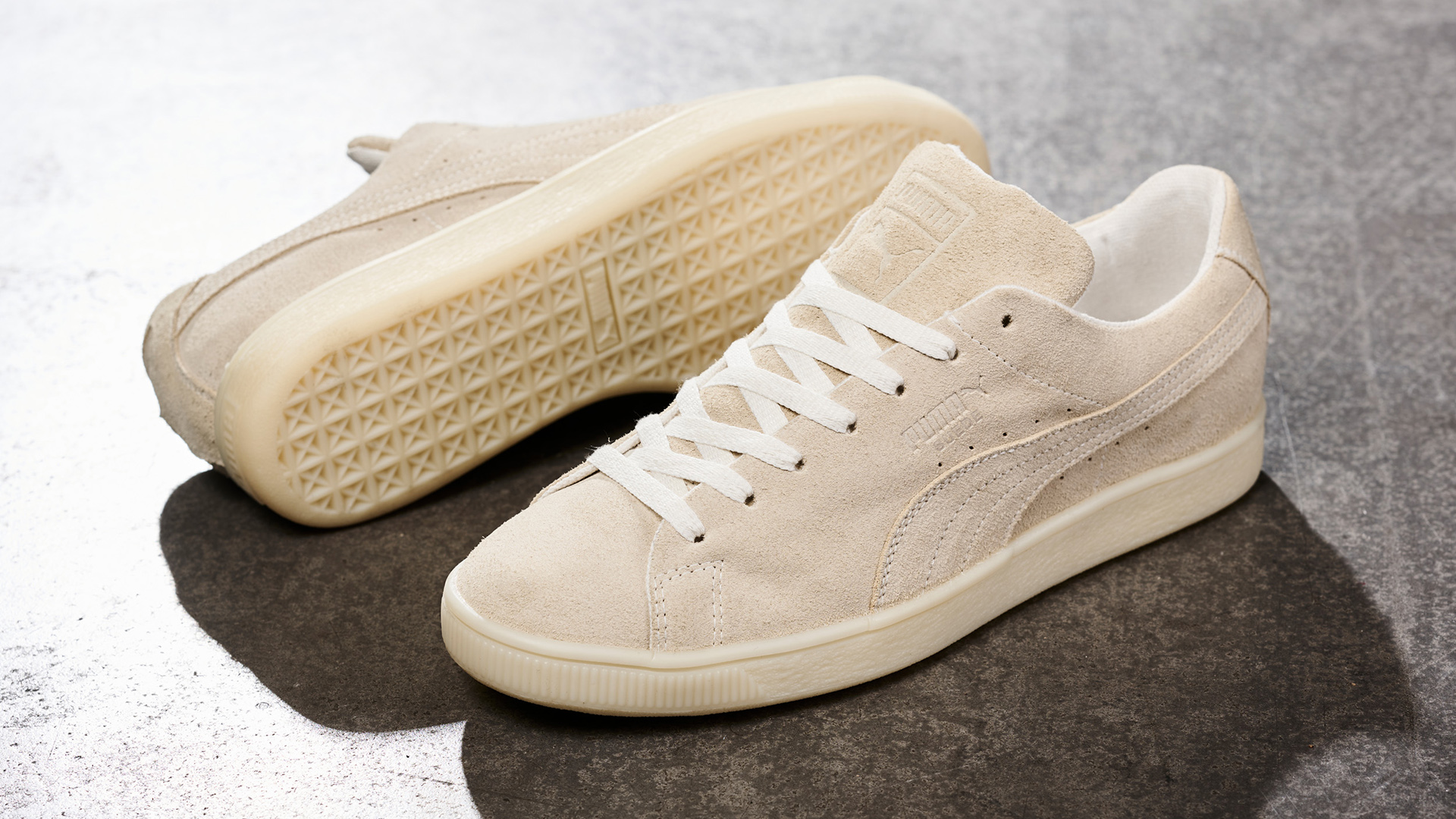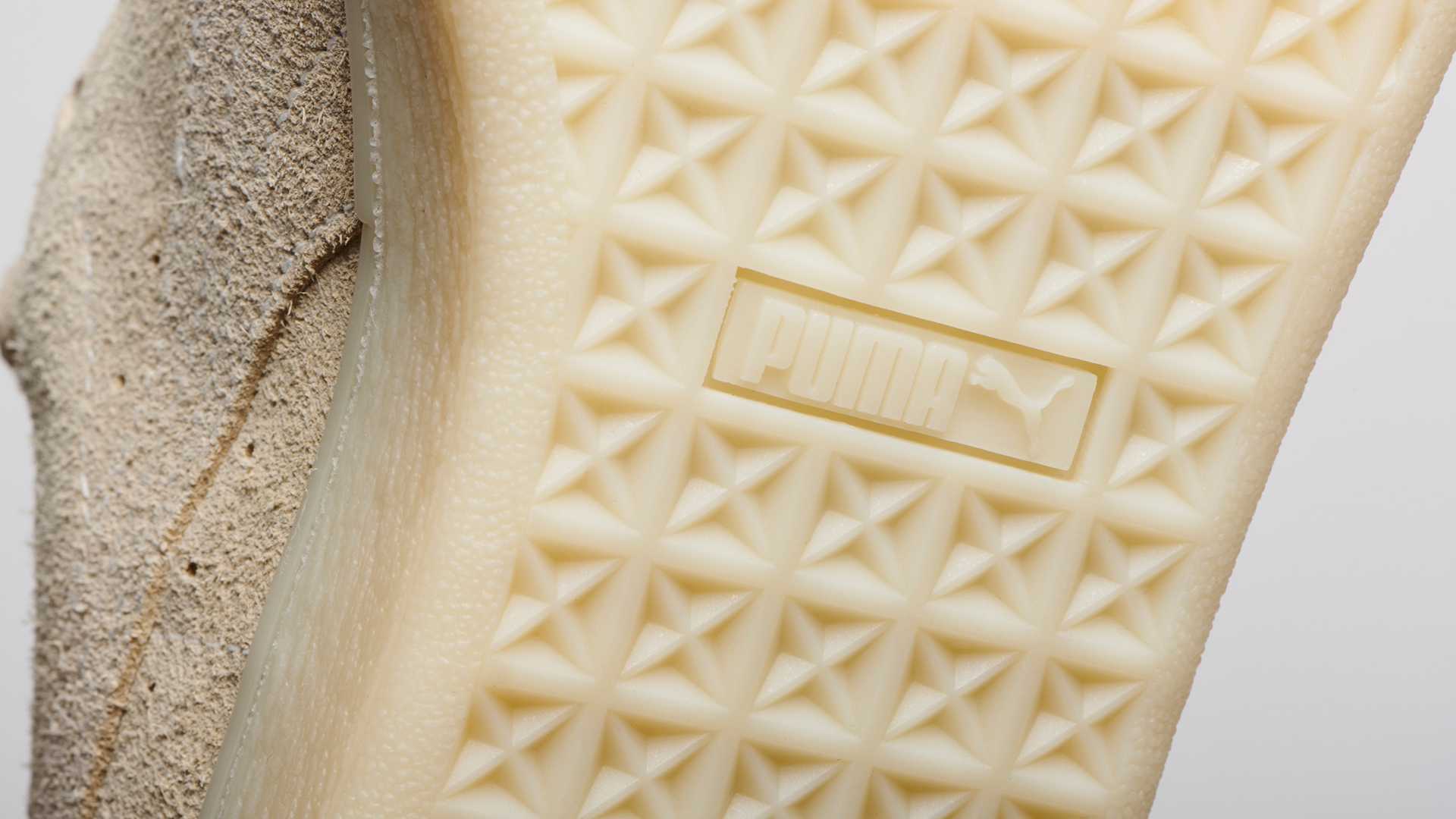
In 2023, most shoe brands have their token sustainable shoes made from recycled materials and shipped via low-carbon emission transportation methods. However, no matter how recycled the shoes are, they often end up in landfill, which is far from environmentally friendly. Puma is set to change this by introducing a fully circular shoe that can be composted once you've done using it.
Many people don't realise how big the footwear market is. According to Sleek Magazine, approximately 24 billion shoes are produced each year, many of which aren't made from recycled materials and definitely aren't compostable (most Puma shoes fall under this category, too). Moreover, Statista says that in 2023, the revenue in the Athletic Footwear segment alone worldwide amounts to US$52.98bn.
In short, lots of unsustainable shoes are made every year, and most of them sell for a lot of money.
Puma set out to change this and used one of its most iconic footwear, the Suede Trainer, to conduct an experiment. In 2021, PUMA created 500 pairs of the experimental RE:SUEDE, using Zeology tanned suede, a TPE outsole and hemp fibres, which were worn for half a year by volunteers in Germany to test the comfort and durability of the shoes before PUMA sent them to a specially equipped industrial composting area operated by its partner Ortessa Group in the Netherlands.
- Interview with Nike Running Design Lead Bret Schoolmeester: "We're pushing boundaries to serve athletes better"

Please note the 'industrial composting area' bit in the above sentence – throwing your old Pumas on the compost pile at home probably wouldn't do the trick. To ensure the shoes are in the best possible shape for composting – so to speak – they were shredded and mixed with other green household waste and placed into a composting tunnel.
Thet, they were then sprayed with leaching water from earlier composting that contains nutrients and naturally heated due to the biological activity and controlled air circulation in the tunnel. After approximately 3.5 months, the materials that were small enough (<10mm) to pass through a sieve were sold as Grade A compost for agricultural use, while the remaining materials were returned to the composting tunnel until they, too, had broken down to the desired level (<10mm).
As you can tell, the process is a bit more elaborate than normal household composting, but it's nice to think that those Puma RE:SUEDE shoes have been turned into crops somewhere in the Netherlands. Maybe someone, someday will give their loved ones a bouquet of tulips made from Puma shoes. I hope so!

The system is far from perfect, but Puma claims everyone involved learned a lot from the trial run. “While all RE:SUEDE materials can decompose, the sole of the RE:SUEDE required more pre-processing and additional time in the composting tunnel to completely break down,” said Marthien van Eersel Manager of Materials & Innovations at Ortessa, where the composting took place.
“We will continue to innovate with our partners to determine the infrastructure and technologies needed to make the process viable for a commercial version of the RE:SUEDE, including a takeback scheme, in 2024,” added Anne-Laure Descours, Chief Sourcing Officer at Puma.
The RE:SUEDE experiment was Puma's first stab at the full circular sneaker concept, launched alongside the groundbreaking polyester recycling programme RE:FIBRE, all part of Puma’s “Circular Lab”. For more info, visit Puma's Newsroom today. For more info on fashion footwear, check out T3's best sneakers guide.







